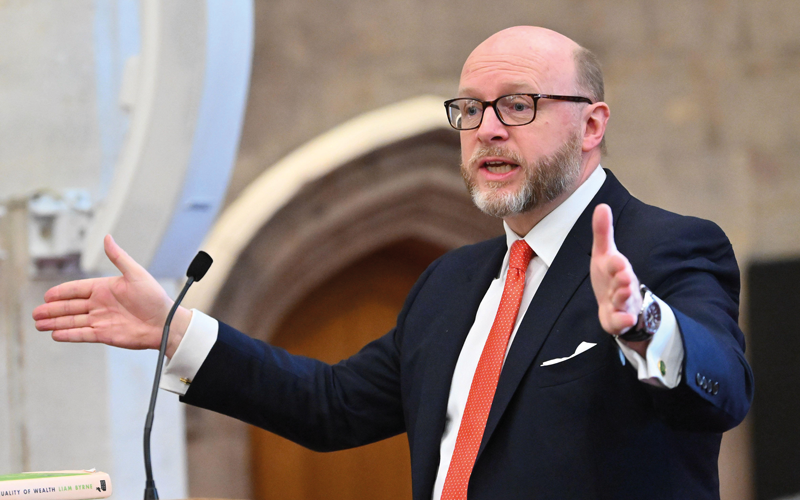Recruiters praised for helping UK in fight to find skilled workers for employers

Struggling to find workers is “the number one impediment” for employers growing their businesses today, while preventing the country’s economic growth.
This is what the chair of the House of Commons Business and Trade Committee Labour MP Liam Byrne (pictured) has told recruiters.
Speaking at the Recruitment & Employment Confederation’s (REC) Parliamentary reception at the House of Commons in February, Byrne was commenting on top line findings from a national consultation his committee held in England, Scotland and Wales in December to help set their work priorities for the short and longer term. The government’s goal is to achieve the highest sustained growth in the G7 group of countries.
The committee heard from businesses, educators and local authorities in Exeter, Cardiff, Oxford, Warwick University, Manchester, Glasgow and at Westminster in London, on topics ranging from the Apprenticeship Levy to trade regulations. Their findings were contained in a report published on 13 February.
“Over and over again, place after place after place, businesses told us that the struggle to get the workers that they need was their number one impediment, the number one barrier to growing their business, and therefore growing our economy faster,” Byrne said at the reception.
The report echoed Byrne’s comments, saying: “Issues around the labour force were the single most important set of concerns we heard from the business community. Many businesses told us that access to skills is one of the biggest barriers to investment and growth and that difficulty finding and recruiting people with the right skills is an ongoing challenge.” (See News article here.)
In speaking to the gathered REC audience, Byrne went on to praise recruiters for “all of the work that you do each and every day helping our businesses grow, a heartfelt ‘thank you’.”
Byrne also praised the REC itself. “You’re quite lucky in that you are members of one of the most effective business organisations that turns up here,” he said. “I’ve been in this game for about 20 years now. I’ve seen the good, the bad and the ugly, and the way that the REC comes to present your case in Parliament, I think, is second to none. And that is going to be more and more important over the course of this Parliament.”
He highlighted the historic significance of current world and national affairs, saying that parliamentary colleagues “have got to do something that we have to try and do only once every 40 or 50 years in the country… over the long arc of history, there are big geopolitical shocks. There are new debates about the sovereign capabilities that we need as a country, and there are then questions about what the government and the state need to look like in the future. And we know that… the way that we’ve got to change is a much better partnership between business and the public sector.
“So, your input over the course of this Parliament in helping ministers get that right is something that is incredibly important.”




